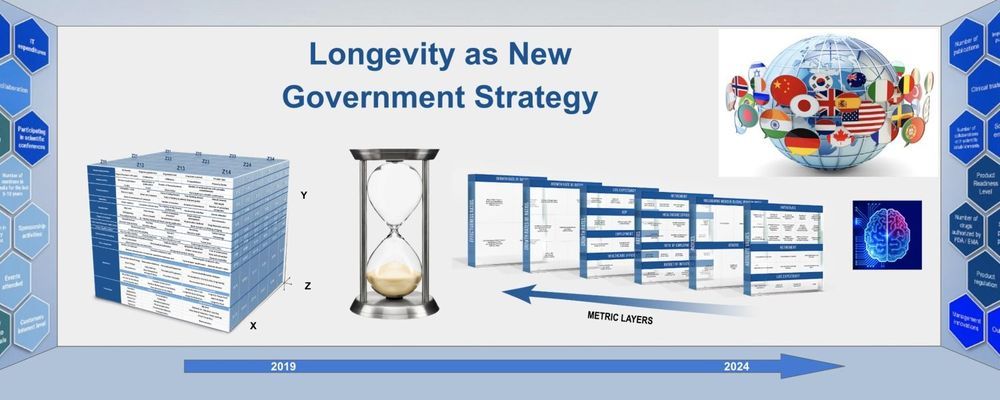Category: government – Page 173
Stranger than fiction: The real-life CIA projects that inspired ‘Stranger Things’
‘Stranger Things’ is built around a massive government conspiracy, but it’s not all science fiction. Here are the real-life CIA experiments that inspired the story.


Pentagon pauses $10 billion cloud contract over Amazon concerns
The Pentagon is hitting pause on awarding its $10 billion cloud computing contract until the Defense Department examines whether the process was rigged in favor of Amazon, according to Business Insider.
“Keeping his promise to Members of Congress and the American public, Secretary Esper is looking at the Joint Enterprise Defense Infrastructure (JEDI) program,” a Pentagon spokesperson said in a statement Thursday. “No decision will be made on the program until he has completed his examination.”
The contract was supposed to be awarded sometime this month.

Mass Surveillance: 1 in 2 Americans Are Already In A Government Facial Recognition Database
As well as Gait Recognition. (Go ahead and wear a disguise.)
The mass surveillance of innocent Americans continues as George Orwell’s 1984 becomes more of a reality with each passing day. “All told, we are barreling toward a future where every ritual of public life carries implicit consent to be surveilled,” writes Sidney Fussell for The Atlantic.
A new report from Georgetown Law‘s Center on Privacy & Technology (CPT) suggests that Immigration and Customs Enforcement (ICE) may be using the rampant problem of illegal immigration as a type of cover to track and spy on Americans in violation of their Fourth Amendment rights. Three years ago, the center revealed that nearly half of all U.S. adults are already in the FBI’s facial recognition database, which is largely sourced from DMV photos.
ICE has apparently requested special access to Department of Motor Vehicles (DMV) databases in at least three states – Utah, Washington State, and Vermont – which the federal agency plans to use in conjunction with facial recognition technology to scan people’s drivers’ license photos and match them against criminal and residency databases, all without their knowledge or consent.

Japan Approves Scientist’s Plan to Create World’s First Humanimals
For the first time, a government is supporting a plan to create animal embryos with human cells and bring them to term, resulting in a type of humanimal known as a human-animal chimera.
According to Nature, a committee from Japan’s science ministry signed off on a request by researchers to grow human pancreases in either rats or mice, the first such experiment to gain approval since a government ban was reversed earlier this year.


Orange alert called as Ubinas volcano spews ash across southern Peru
The government has called a state of emergency in 12 districts across southern Peru as eruptions continue at Mt. Ubinas. Local governments are being overwhelmed particularly by health emergencies.
The eruptions of dense ash began before dawn on Friday, darkening nearby villages and spreading across four regions of Moquegua, Arequipa and Tacna. The Peruvian Geophysical Insitute, IGP, first issued a yellow alert but raised this to orange by noon as the eruptions increased. The ash will affect the health of inhabitants and also crops and grazing land, as winds spread the ash across the south and southeast of the region.
Emergency measures include immediate intervention of most government ministries, including Health, Agriculture, Transport and Environment. In earlier eruptions —most recently in 2013 and 2014— people from the villages close to the volcano had to be housed further away until the eruptions subsided.

How an authoritarian regime will intercept all internet traffic inside its country
How dictators work in the 21st century.
The new president of Kazakhstan is now proving that he will keep the old, oppressive systems alive for the 21st century, using advanced technical tools.
The man in the middle: Beginning last week, Kazakhstan’s government is intercepting all HTTPS traffic inside the country, ZDNet reports. HTTPS is a protocol meant to offer encryption, security, and privacy to users, but now the nation’s internet service providers are forcing all users to install certificates that enable pervasive interception and surveillance.
On Wednesday, Kazakh internet users were redirected to web pages instructing them to install the government’s root certificate in their web browser, which enables what’s called “man in the middle” interception of internet traffic, decryption, and surveillance.

Electronic Harassment Must Stop‼️ Photo
TEMPEST is a U.S. National Security Agency specification and a NATO certification referring to spying on information systems through leaking emanations, including unintentional radio or electrical signals, sounds, and vibrations.
The traditional approach for TEMPEST product approval provides for government supervision of evaluations to include testing oversight and technical reviews of both the TEMPEST test plans and test reports produced by a nation’s TEMPEST evaluation personnel.
NATO agreed on a scheme in 1981 to have vendors offer approved TEMPEST products for sale to NATO and NATO member nations.